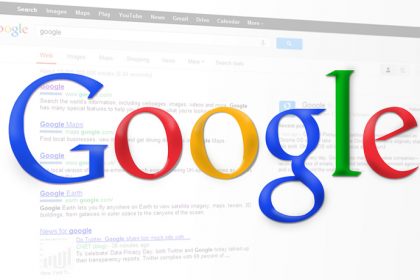The ECJ today made an interesting decision on trademark infringement by a Google search result. A trademark infringement and use of the trademark by a Google search result is only present if the potential trademark infringer has placed his own ad on Google which leads to this Google search result.
Trademark infringement by a Google search result?
Today’s judgment of the ECJ is based on a question submitted by Germany, which asked for an interpretation of the ‘use’ of a trade mark within the meaning of Article 5(1) of Directive 2008/95.
In the main proceedings two law firms were opposed. MBK Rechtsanwälte (Germany) had applied for trade mark protection for the name “MBK Rechtsanwälte”. They brought an action against the law firm mk advokaten (Germany), which practised under the name “mbk rechtsanwälte” and under the corresponding name in Dutch “mbk advokaten”. MBK Rechtsanwälte successfully claimed trademark infringement and obtained a cease-and-desist declaration.
Nevertheless, Google searches subsequently continued to produce a Google search result which still referred to mk advokaten by the search term “MBK”. The mk advokaten argued that they themselves didn’t had placed an advertisement on Google, but had only placed their own active ad in the German search directory ‘Das Örtliche’. Within this ad, all characters containing the letter sequence “mbk” had been deleted. They are not obliged to make any further efforts, as they have never requested entries on other websites.
Discrepancy between German and European jurisdiction
According to the established case law of the German courts, however, a person whose online advertisement violates a right of a third party is obliged to extensive deletions. Such an advertisement must be deleted from the website in question, and it must also be investigated with the help of the usual search engines whether operators of other websites would have taken over this advertisement and, if this were the case, a serious attempt must be made to delete these later entries in the search engines.
In this context, much attention was paid to the ruling of the Federal Court of Justice (BGH) Ortlieb vs. Amazon of July 2019, in which the BGH ruled that linking Google Ads to third-party providers is misleading. Amazon was not allowed to use a trademark for linked Google Ads which misleadingly displayed not only the products of these trademarks but also products of third parties.
However, in discrepancy with this, the ECJ had already ruled in 2016 (Damiler, EU:C:2016:134) that a third party named in an ad published on a website with a trademark infringing sign does not make use of that sign which may be prohibited by the proprietor under this provision if the ad has not been placed by that third party or on its behalf.
The OLG Düsseldorf, which is responsible for this case, wanted to clarify this discrepancy between European and German case law and therefore asked for an interpretation of the ‘use’ of a trademark in accordance with the EU Directive.
In other words, if an ad is placed, as in the case of a Google search result, which infringes a third party’s trade mark, who is the user of the sign identical with, or similar to, that trade mark?
ECJ: Use of the trademark presupposes active behaviour
In today’s judgment (EU:C:2020:519), the European Court of Justice (ECJ) confirmed the guideline from the ECJ Daimler judgment of 2016, stating that the term “use” in Article 5(1) of Directive 2008/95 requires active conduct and direct or indirect control over the act of use. Therefore, a potential infringer of a trade mark cannot be regarded as a user of that trade mark, irrespective of his conduct, simply because that use may confer on him an economic advantage.
The ECJ also held that, where an ad is accepted by operators of websites on their own initiative and in their own name, it cannot be assumed that the economic operator whose goods or services are advertised in this way is a customer of those operators. In the present case, it must therefore be ascertained whether it is apparent from the conduct of mk advokaten in the context of a direct or indirect relationship between it and Google that Google placed the ad online on behalf of and for the account of mk advokaten.
In the case of an advertisement which infringes a trademark of a third party, a person acting in the course of trade does not use that sign if the advertisement was not placed by that person or in his name, the ECJ ruled. In relation to a Google search result, this means that a trademark infringement by the Google search result can only exist in the case of an own Google ad by the infringer.
Also, a person is not considered a user of the trademark under Directive 2008/95/EC if this person has placed an infringing ad but has expressly requested the respective search engine operator or the search directory to delete the ad or the trademark mention contained therein.
Do you also see your trademark rights threatened?
We consider each case individually and carefully.
Our attorneys have many years of expertise in trademark law as well as in the entire field of intellectual property and are entitled to represent you in any court – in Germany and internationally.
Please contact us if you are interested.

Sources:
Judgement of ECJ ‘Google search MBK”, EU:C:2020:519
Image:
Simon | pixabay.com | CCO License








Leave a Reply